Chapter 8 Medieval Europe | Oxford Humanities and Social Sciences 8 Australian Curriculum
1/36
There's no tags or description
Looks like no tags are added yet.
Name | Mastery | Learn | Test | Matching | Spaced |
|---|
No study sessions yet.
37 Terms
lords
wealthy nobles under the system of feudalism
vassals
people who offered their loyalty and service to a lord in return for his protection and the granting of land
feudalism
a set of legal and military customs that served to organise the society of medieval Europe and Japan; under feudalism, a lord gave a fief (parcel of land) to a person (called a vassal) in exchange for service and loyalty
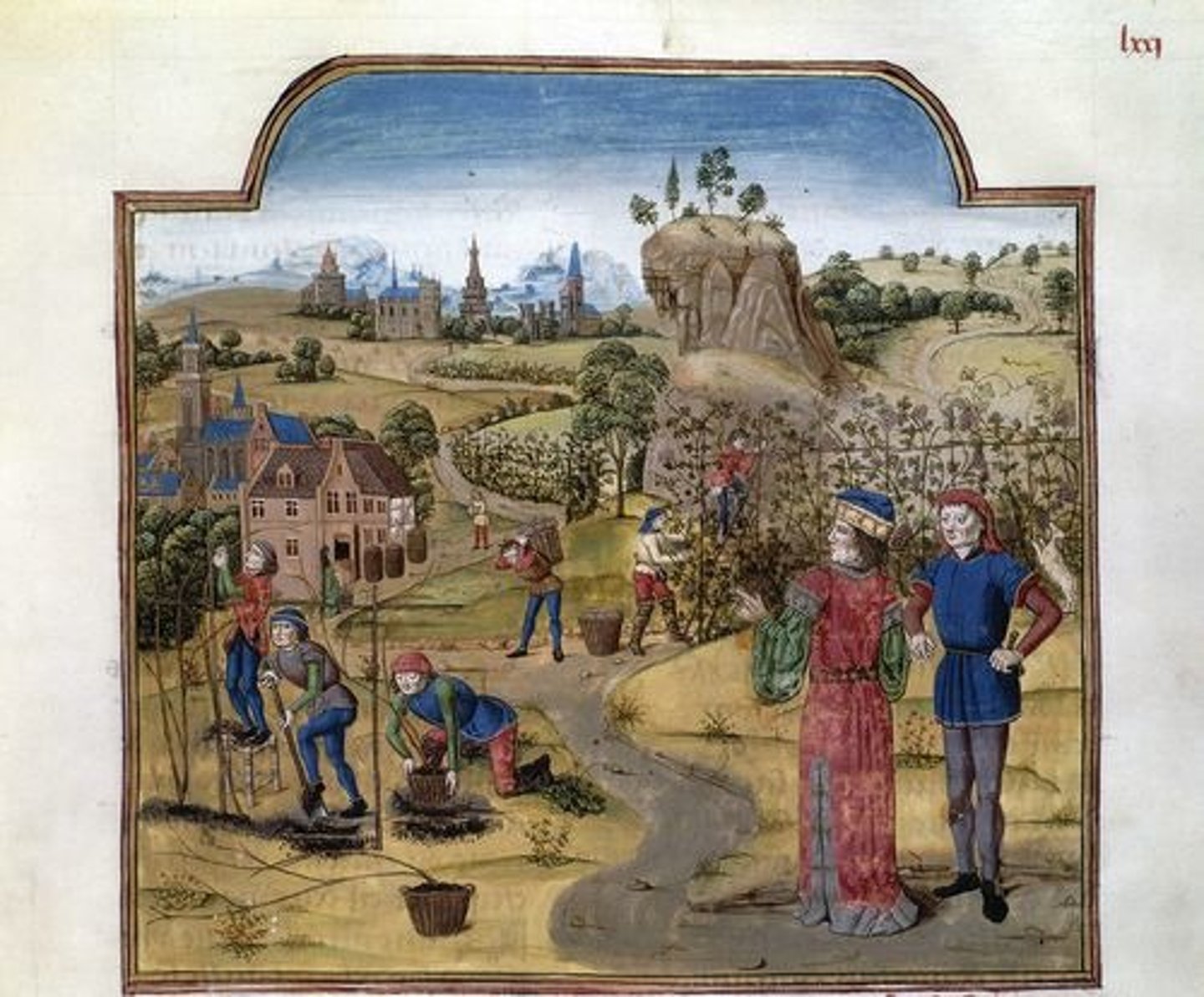
census
a 'head count' or audit of the number of people living in a particular place at a particular time; information collected during a census often includes age, occupation, income, etc.
knights
warriors in medieval Europe
minstrels
medieval singers and musicians who typically wandered around the countryside performing at events (often as a part of a small group)
jesters
medieval comedians who joked and 'played the fool' at occasions such as banquets and fairs; they typically wore a multi-pronged floppy hat with bells on it
moat
a wide band of water surrounding a built structure such as a castle; it provided some protection in the event of attack
tournament
a public event held in medieval Europe, similar to a fair or carnival; tournaments featured organised battles and a series of jousts between knights on horseback
Danelaw
an area in north-west England that the then King of Wessex, Alfred, gave to the Vikings in exchange for their stopping raids of the region
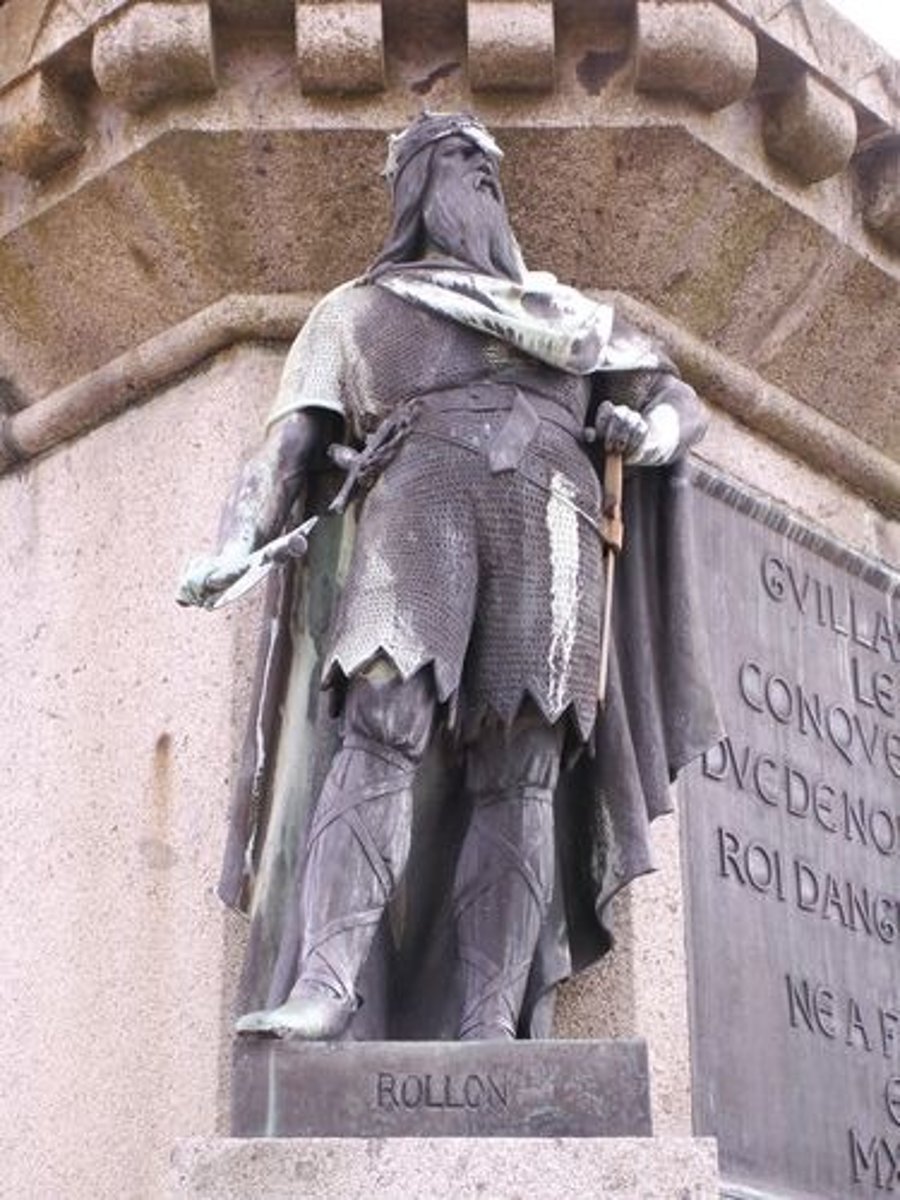
Anglo-Saxon
Germanic people who settled in Britain in the 400s CE; they drove the local Celtic people to the land's extremities
clergy
the priests or ministers of a religion, especially the Christian Church
mass
an act of worship in the Catholic Church
exocommunicated
being cut off from the church community (including participation in communion and confession); a religious punishment
Silk Road
a network of trade routes stretching west from China to the Mediterranean Sea; it was the main means by which silk was introduced to the West
chronicle
a detailed narrative on an event
heresy
the act of doing something in serious conflict with the teachings of the Church
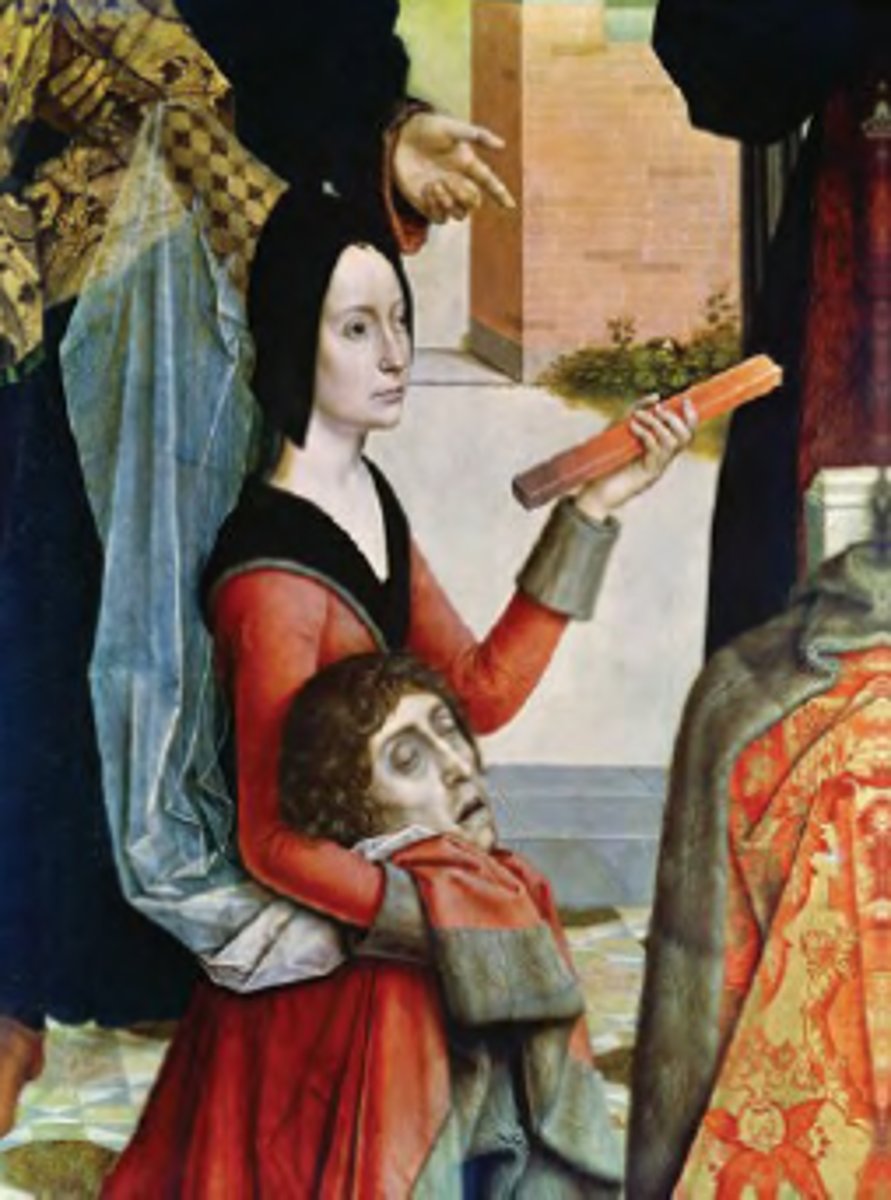
treason
the act of betraying one's own country or ruler
jury
a group of people who are required to decide on a 'guilty' or 'not guilty' verdict in a court case
charter
a formal document in which a person in authority states that certain rights or responsibilities are granted to others
Magna Carta
meaning 'Great Charter'; a document signed in 1215 by England's King John and his nobles - it outlined the rights of the people and meant that the king would thereafter be expected to rule according to the law
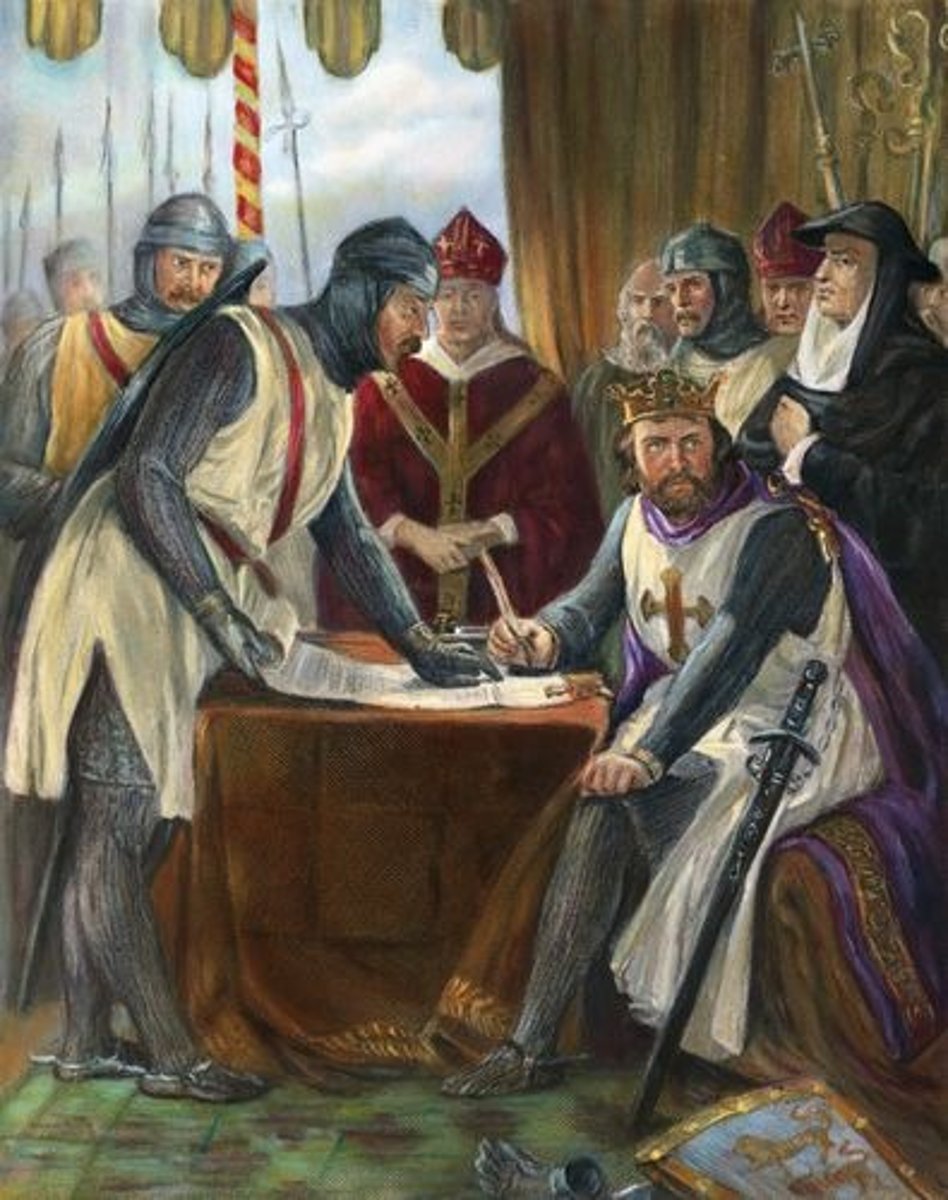
siege
a military strategy to weaken an area by cutting it off from the outside world
battlements
the top of the wall around a castle, with regular spaces, through which the people inside could shoot
plundered
stole from, often using violent force
casualties
people who are killed or injured in war or in an accident
chivalry
polite and kind behaviour that shows a sense of honour, especially by men towards women
guilds
groups of people all working in the same trade (e.g. butchers, tailors, cobblers) who band together in support of their common interests
pandemic
a term used to describe the spread of an infectious disease across an entire country, a large region, or even the whole world
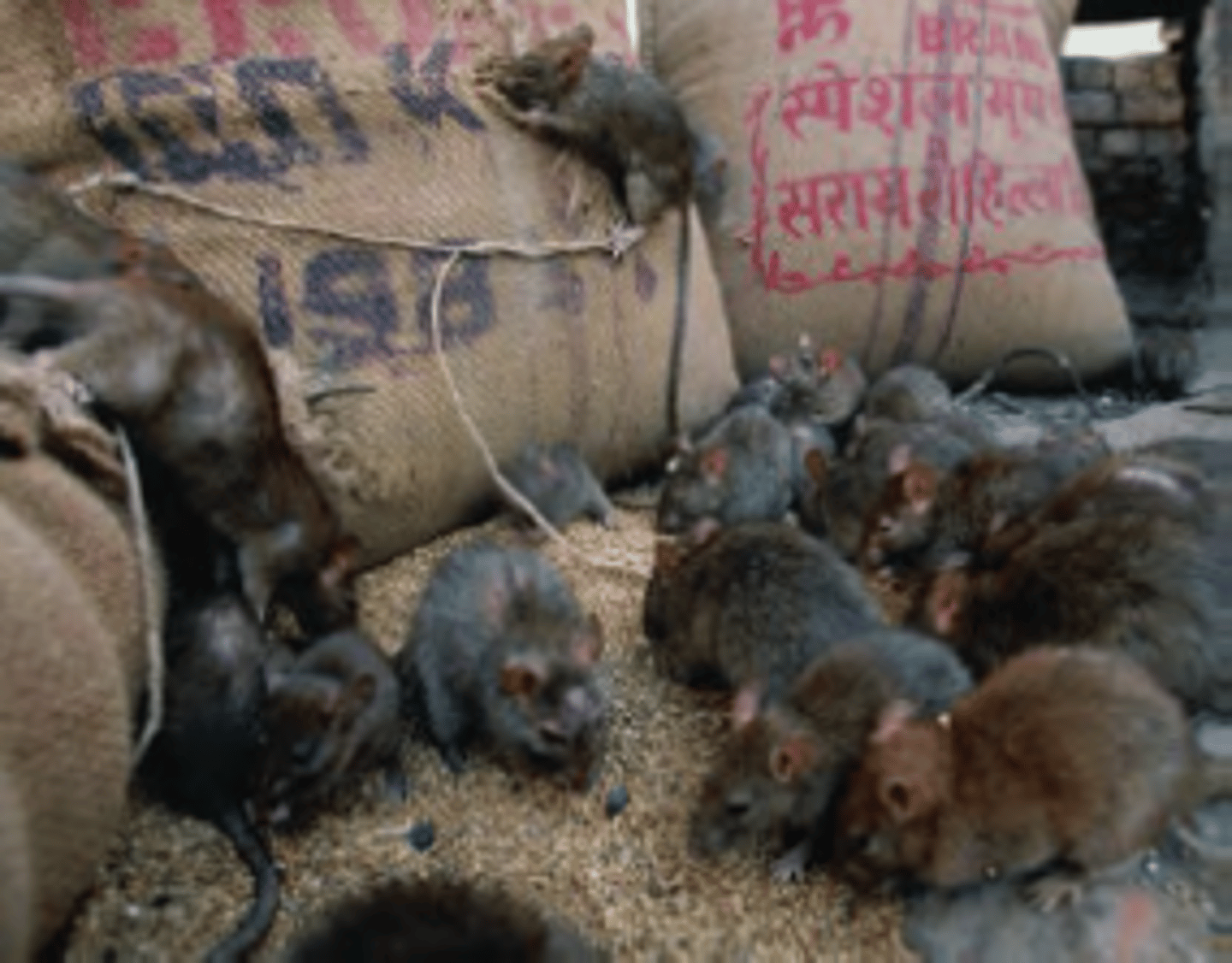
buboes
the blackened, swollen, pus-filled lymph nodes (part of the immune system) evident on the body of someone with the bubonic plague
bubonic plague
an infectious disease caused by bacteria (called Yersinia pestis), which are carried by fleas on rats and mice; it often quickly kills those who contract it; visible symptoms include buboes
Tatars
members of an ethnic group whose members can be found today in countries such as Turkey (Türkiye), Uzbekistan, Kazakhstan, Ukraine and Azerbaijan
nomadic
a society of people who do not live in a set place but move around, usually in search of food and shelter, and good pasture for their animals
humours
four liquids - blood, phlegm, yellow bile and black bile - that were thought in the past to influence a person's health and character
quarantine
a period of time when an animal or a person that has - or may have - a disease is kept away from others in order to prevent the disease from spreading
mortality rate
a measure of the number of deaths in a particular population
autopsies
examinations of bodies to discover - or find out more about - the cause of death
Reformation
a movement that began in Europe in the sixteenth century when the scholar-monk Martin Luther publicly challenged the Catholic Church; it shifted the balance of power in Europe away from dominant control by the Church